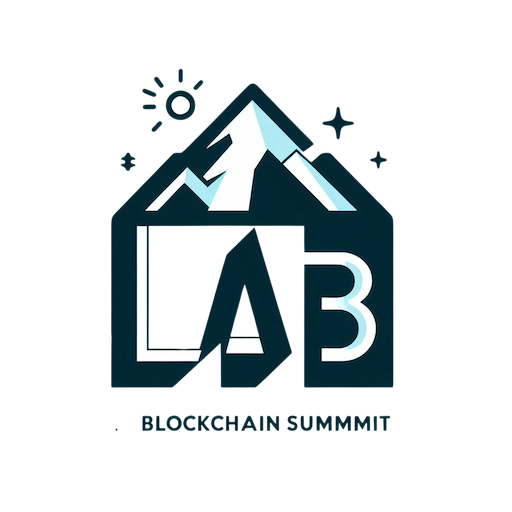
Could you even have imagined that Gnosis, a decentralized prediction market platform, has the potential to revolutionize how we forecast events? With its unique approach powered by blockchain technology, Gnosis isn’t just another crypto project—it’s paving the way for more accurate and transparent predictions.
Gnosis operates on Ethereum, leveraging smart contracts to create a trustless system where users can bet on outcomes of various events. This means no middlemen and complete transparency in the betting process. It’s not just about predicting sports scores or election results; Gnosis can be applied to any event with an uncertain outcome.
If you’re someone who’s tired of centralized systems failing you or simply curious about innovative uses of crypto, Gnosis might pique your interest. It addresses common concerns like lack of transparency and trust issues in traditional prediction markets. I remember dabbling in some prediction markets myself and feeling frustrated by how opaque they were. In this text, I’ll jump into what makes Gnosis stand out and how it could change the game for future forecasting.
Overview of Gnosis Crypto
Gnosis crypto is like the crystal ball of blockchain. This decentralized platform lets users predict events and outcomes, trying to make forecasting more accurate and transparent. Powered by Ethereum, Gnosis uses smart contracts so folks can place bets without needing a middleman.
How It Works
So, how does it work? Imagine you’re at a party with friends debating who’ll win the next big game. Instead of just talking, you all decide to put some money on your predictions. That’s what Gnosis does but on a much bigger scale and way more secure, thanks to blockchain tech.
Key Concepts
Prediction Markets: These are platforms where people bet on future events. Think sports games or elections. The idea is that crowdsourced predictions can be surprisingly accurate because they gather wisdom from various participants.
Smart Contracts: These are self-executing contracts with terms directly written into code. On Gnosis, smart contracts handle bets automatically once the event happens, ensuring no one cheats or backs out last minute.
Emerging Trends
Gnosis isn’t just sticking to old methods; it’s evolving! For example:
- Decentralized Finance (DeFi): Gnosis integrates with DeFi platforms so users can earn interest on their assets while making predictions.
- NFT Integration: Non-Fungible Tokens (NFTs) add unique value propositions to prediction markets by providing exclusive rewards for accurate forecasts.
- Layer 2 Scaling Solutions: These technologies help reduce transaction costs and speed up processing times on Ethereum’s network.
Common Concerns
I get it; crypto can feel risky sometimes. But here are some reassurances:
- Security: Since everything’s on the blockchain with smart contracts handling transactions, there’s less chance of fraud.
- Transparency: Every transaction’s publicly recorded, making it easy to verify outcomes.
- Costs: While Ethereum gas fees might be high occasionally, Layer 2 solutions aim to reduce these expenses significantly.
History of Gnosis
Gnosis, a decentralized prediction market platform on Ethereum, has an intriguing history. It leverages blockchain technology for accurate and transparent event forecasting.
Founding and Development
Gnosis started in 2015 as part of ConsenSys, a venture studio focusing on Ethereum projects. Martin Köppelmann and Stefan George co-founded it with the goal of creating a decentralized platform for prediction markets. Their vision? To enable anyone to bet on outcomes without needing intermediaries. Initially, they faced challenges like developing reliable smart contracts and ensuring user security. But they persevered, launching the first version of Gnosis in 2017.
Key Milestones
In April 2017, Gnosis held its Initial Coin Offering (ICO), raising $12.5 million in just 10 minutes—an impressive feat at the time! This funding enabled further development and expansion. Another significant milestone came in July 2020 when Omen, a new prediction market interface built by GnosisDAO, was launched. More recently, they’ve integrated with various DeFi projects to allow users to earn interest on their assets while participating in prediction markets. These milestones have solidified Gnosis’s position as a leader in decentralized prediction platforms.
Core Features
Gnosis has a ton of interesting features that make it stand out in the crypto world. Let’s jump into some of the coolest ones.
Decentralized Prediction Markets
Gnosis lets you bet on future events using blockchain tech. Imagine predicting who’ll win the next big game or which stock will rise, but instead of going to a bookie, you’re doing it all online with no middleman. It’s like crowdsourcing predictions; everyone chips in their thoughts, and surprisingly, these group guesses can be super accurate. Plus, because it’s decentralized, you don’t have to worry about shady practices—everything’s transparent and secure.
Gnosis Safe
Ever misplaced your keys? Losing access to your digital assets is kinda like that but way worse. Enter Gnosis Safe—a digital vault for storing your crypto securely. Think of it as a high-tech safety deposit box where only you (or people you trust) can access the goodies inside. But here’s the twist: it uses smart contracts to manage everything automatically, so there’s less room for human error or hacking attempts.
GNO Token
The GNO token is basically the lifeblood of Gnosis. You use it to participate in prediction markets and pay for transactions within the platform. It’s like having tokens at an arcade—you need them to play any games there. And just like how those tokens might go up in value if the arcade gets popular, GNO could become more valuable as more people start using Gnosis.
These core features are what make Gnosis not just another crypto project but a real game-changer in how we predict and interact with future events digitally.
Use Cases
Gnosis isn’t just some abstract concept; it’s got real-world applications that are pretty exciting. So, let’s jump into a couple of key use cases where Gnosis really shines.
Financial Forecasting
Ever wonder how people predict stock prices or the next big financial trend? Gnosis can help with that. By using prediction markets, users can forecast financial events like stock market movements, interest rates, and even cryptocurrency price changes. Think of it as crowdsourcing predictions—when lots of people put their heads together, they often get things right more often than not. It’s kinda like how you’d trust a group opinion over just one person’s guess when picking a restaurant.
Event Outcome Predictions
Imagine betting on who’ll win the next big sports game or which movie will snag an Oscar. With Gnosis, you can do just that but in a decentralized way. This means no middlemen taking a cut; it’s all peer-to-peer action on the blockchain. Users bet on event outcomes ranging from political elections to award shows and sporting events. And because it’s all on the blockchain, it’s transparent and secure—everyone sees what’s going on so there’s no funny business.
Advantages of Gnosis
Gnosis has a lot going for it. Let’s jump into some key advantages that make this platform stand out.
Security
Security’s a big deal in the crypto world, right? With Gnosis, you’re covered. The platform uses smart contracts to handle transactions, so you don’t have to trust any middleman. For example, when you place a bet on an event outcome, the smart contract ensures everything’s fair and square. Plus, with the Gnosis Safe acting as your digital vault, your assets are super secure. This setup minimizes risks like human error or hacking attempts.
Decentralization
One of my favorite things about Gnosis is its decentralization. This means no single entity controls the platform; instead, it’s governed by code and community consensus. So when you’re making predictions or betting on outcomes, you’re doing it in a transparent environment where everyone plays by the same rules. Unlike traditional markets where you might worry about manipulation or unfair practices, Gnosis keeps things honest and open for all users.
Potential Drawbacks
Market Adoption Challenges
Gnosis, like any new tech, faces some hurdles. For one, not everyone gets the whole “decentralized prediction market” thing. It’s kind of like when smartphones first came out—people didn’t see the need until they saw it in action. So, adoption is slow because folks just aren’t familiar with how it works or why they’d want to use it.
Another issue? Competition. Other platforms are popping up with similar features, so Gnosis has to fight for attention. It’s a bit like trying to open a coffee shop in a city full of them—you’ve got to stand out somehow.
Regulatory Concerns
Then there’s the whole legal side of things. Crypto and blockchain stuff are still pretty much the Wild West when it comes to regulations. Different countries have different rules, and that can make things tricky for Gnosis.
For example, what flies in one country might be totally illegal in another. This makes expanding globally a bit of a headache. Plus, if governments decide to crack down on crypto stuff (which they sometimes do), Gnosis could get caught in the crossfire.
So yeah, while Gnosis has tons of potential, it’s not all smooth sailing from here on out.
Conclusion
Gnosis has come a long way since its inception and continues to innovate in the world of decentralized prediction markets. I’m genuinely excited about its potential to revolutionize event forecasting and financial predictions through blockchain technology.
With features like smart contracts, the Gnosis Safe, and integration with DeFi and NFTs, it’s clear that Gnosis is pushing boundaries. Sure there are challenges ahead but I believe in its promise.
If you’re curious about crypto or prediction markets give Gnosis a look. It just might be your next big discovery in the blockchain space.
